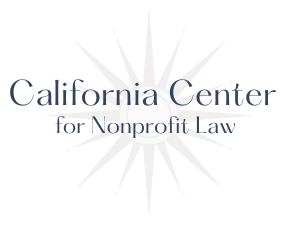
The Dangers of Using AI for Legal Research
Artificial intelligence (“AI”) can feel like a shortcut to answers—type in your question, and within seconds, you get what looks like a confident, well-researched response. But when it comes to legal matters, that speed can be dangerously misleading. AI tools don’t “know” the law; they generate text based on patterns in data, which means they can produce outdated information, misinterpret statutes, or even invent court cases that never existed. Relying on these errors could cause you to miss deadlines, file the wrong paperwork, or make decisions that harm your rights. Before you trust AI with something as important as your legal situation, it’s critical to understand its limits—and why professional legal advice is still essential.
When AI Gets It Wrong
By now, you’ve likely heard the horror stories of relying on AI for legal research – and not doublechecking the results. Courts nationwide have sanctioned lawyers, as well as unrepresented litigants, for citing court cases that don’t exist, relying on an outdated version of a statute, and badly botching the interpretation of a law.
AI tools are only as good as the sources used to train them. As a result, if a data source is incorrect, outdated, or biased, the program may produce inaccurate answers to your questions. Just like any information you find online, its existence doesn’t guarantee it is correct or true. Furthermore, it is humans who place information online in the first place. Humans make mistakes. Therefore, doublechecking anything an AI tool generates with multiple sources is crucial.
For instance, state statutes are often very lengthy and contain multiple clauses, including exceptions. All too often, AI will either skip right over an exception outlined in a statute or apply it too broadly to every provision in the statute, leading to incorrect information.
In another example, suppose you ask ChatGPT to identify court cases that support your legal position. In some cases, ChatGPT has been known to come up with court cases from the wrong state or district, cases that don’t support your position at all, cases that don’t even remotely relate to your case, or completely fictitious cases.
Benefits of AI
Despite its limitations, AI can still be incredibly useful in legal research. AI tools can sift through large quantities of legal data far more quickly than a human, thus easing heavy workloads and helping with tight deadlines. However, anyone relying on AI-generated research and data must take steps to ensure the accuracy of the information.
For example, both lawyers and non-lawyers often ask Google to identify a particular state law so that they can see what it says about a particular issue. In many cases, Google can accurately identify the statute. However, you must look at the data source underlying Google’s answer. Ask yourself:
- Is the text of the identified statute taken from a reliable source, such as an official state or highly vetted private database? A Google search might take you to Cornell University’s Legal Information Institute, which is a reputable legal database, or the state of California’s official legislative website, which contains the “official” source of the current text of laws. However, the search just as easily could take you to California.Public.Law: Online California Law Library, which looks like an official state government site – but isn’t.
- Are you looking at the most updated version of the statute? Statutes change over time, and different versions of the same statute are easily located online. For instance, the legal database Justia often brings up an outdated version of a statute for which you are searching. In most cases, there’s a notation at the top of the screen that it “might not be the most updated version” of the statute, but it is easy to overlook.
- Have you doublechecked the text of the statute against another source to make sure you’re looking at the correct statute?
Frequently Asked Questions (FAQ)
Can AI tools provide me with incorrect legal information?
Yes. AI systems—especially general-purpose platforms like ChatGPT or Microsoft Copilot—can produce inaccurate, outdated, or even entirely fabricated (“hallucinated”) case law or statutes. Because they generate text by predicting likely word patterns rather than verifying facts, they may miss recent legal developments or misinterpret precedent. Even legal-specific AI tools require human review to confirm accuracy before relying on their output in legal strategy or filings.
Why can’t I just use AI instead of hiring a lawyer?
AI can provide general legal concepts, but it cannot fully understand the context of your situation as a trained attorney can. Laws often have exceptions, local variations, and procedural rules that AI might miss. A wrong step — like filing the wrong form or missing a deadline — can have serious, sometimes irreversible, consequences. AI is a tool, not a substitute for professional legal advice.
What’s the risk of sharing my personal details with an AI tool?
Many AI platforms store and process what you type in, and some may share that data with third parties. If you enter sensitive information — like your name, address, financial details, or specifics about your legal problem — you could be exposing it to people or companies you don’t know. Using AI in this manner could put your privacy, security, or even your legal position at risk.
Your Compliance Partner Every Step of the Way
The laws governing charitable organizations are constantly evolving, but you don’t have to navigate them alone. At the California Center for Nonprofit Law, we monitor every legal development so you can focus on advancing your mission with confidence. For guidance tailored to your nonprofit’s unique needs, call us at (949) 892-1221, email info@NPOlawyers.com, or reach out through our website today.
